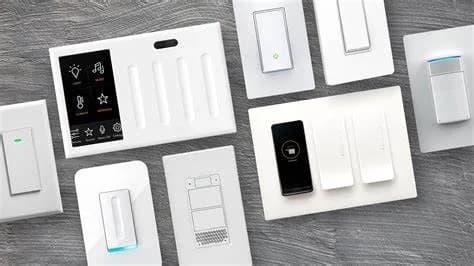My perspective on the conflict between smart lights and smart light switches

Smart Bulbs vs. Smart Light Switches: Why Smart Switches Might Be the Better Choice for Consumers
As the era of smart homes continues to gain momentum, the debate between smart bulbs and smart light switches is becoming increasingly common among consumers looking to upgrade their lighting systems. Both options offer the allure of modern convenience, energy efficiency, and enhanced control, but for the average consumer, the choice might not be as straightforward as it seems. While smart bulbs have their appeal, we believe that smart light switches present a compelling case for being the more practical and cost-effective solution. Here’s why.
The Lifespan Factor
One of the most significant considerations in the smart lighting debate is the lifespan of the products. Smart bulbs, while technologically advanced and versatile, tend to have a shorter lifespan compared to smart switches. A typical smart bulb may last between 15,000 to 25,000 hours, depending on the brand and usage. In contrast, smart switches, which control the power to the existing fixtures and bulbs, can last for decades, as they do not have components that degrade as quickly.
When a smart bulb reaches the end of its life, it needs to be replaced, which can be quite costly considering the price of smart bulbs compared to regular ones. This recurring cost can add up over time, making smart bulbs a less economical choice for the long haul.
Cost Efficiency
The initial cost of smart bulbs can be quite high. While a standard LED bulb might cost just a few dollars, a reliable smart bulb can cost anywhere from $60 to $80 or more. If you plan to outfit an entire home with smart bulbs, the cost can quickly escalate. On the other hand, smart switches typically cost between $20 and $50 per unit. While this may seem expensive initially, it’s a one-time investment. Once installed, smart switches allow you to use regular LED bulbs, which are significantly cheaper and have a long lifespan.
Moreover, with smart switches, you can control multiple light fixtures with a single switch, reducing the need for multiple smart bulbs in large areas. This centralized control is not only cost-efficient but also simplifies the management of your home’s lighting.
Installation and Compatibility
While both smart bulbs and smart switches offer smart home integration, their installation processes differ significantly. Smart bulbs are generally easy to install — simply screw them into the socket and connect to your smart home system. However, smart switches require some basic electrical work for installation. This might seem daunting to some, but we offer professional installation and configuration services for those who prefer not to handle the electrical work.
Convenience and Control
Both smart bulbs and smart switches provide smart control through mobile apps, voice assistants, and automation systems. However, smart switches offer the added convenience of manual control. Even if your smart home system goes offline or malfunctions, you can still use the switch manually to control your lights. Many smart lights rely on proprietary software and may contain malware or spy on you as well. This can be a significant advantage in favor of smart switches in maintaining the functionality of your home’s lighting. We can configure smart switches to not have access to the internet and only operate on your local network.
Conclusion: Why Smart Switches Might Be the Better Choice
For the general consumer, smart light switches provide a more durable, cost-effective, and versatile solution compared to smart bulbs. The longer lifespan of smart switches means fewer replacements and lower long-term costs. The ability to use any type of bulb and the convenience of centralized control make smart switches a practical choice for many households. The one scenario where we would recommend smart lights would be in an area that you want bulb-specific capabilities like different colors. This cannot be achieved with smart switches.
While smart bulbs have their place and offer great features for specific needs and preferences, the overall benefits of smart switches make them a superior choice for those looking to invest in smart home lighting. So, when faced with the decision between smart bulbs and smart light switches, consider the long-term savings, ease of use, and broader compatibility that smart switches offer.